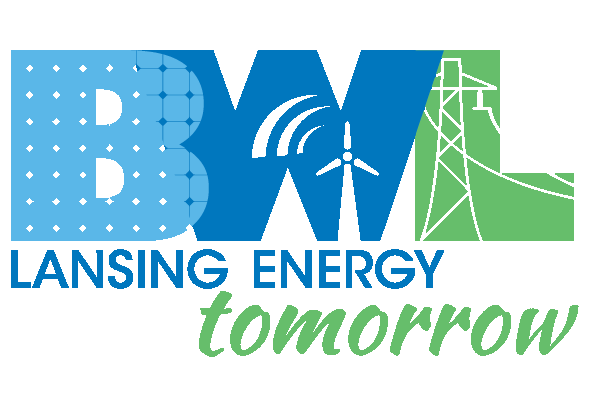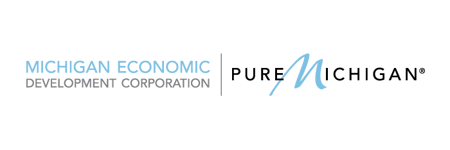
From working with global leaders to challenging innovative startups for solutions, Michigan is putting a strong focus on building smart infrastructure and protecting vehicle and driver data. These fundamental pieces to advancing connected and driverless technologies are all part of the year 'round work being done on Planet M to advance the mobility of tomorrow. Here are some of the latest news announcements you might have missed.
/logo_planetm.png?width=156&height=53&name=logo_planetm.png) Trevor Pawl, Group Vice President, Planet M
Trevor Pawl, Group Vice President, Planet M
Self-Driving Shuttles Come to the University of Michigan in 2017
Driverless shuttles will soon be available to students and staff at the University of Michigan as part of a research program being launched by the 32-acre connected and automated vehicle proving ground Mcity. Starting in fall of 2017, two autonomous, all-electric shuttles from the French firm NAVYA will be traveling a non-stop two-mile route on U of M’s North Campus.
The 15-passenger shuttles will be equipped with on-board cameras and Wi-Fi communications, collecting data generated during their operation. They will also use GPS for localization and lidar sensors to navigate the surrounding environment.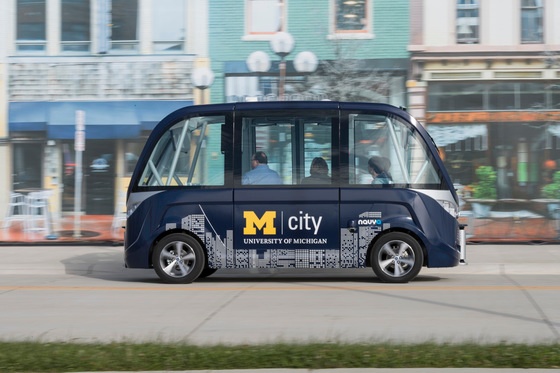
Mcity’s researchers will collect information on how passengers feel about self-driving technology, record the number of riders and examine patterns of use. They will also look at pedestrian and bicyclist behavior as it relates to shuttle operation.
A partnership between industry, communities, and government, Mcity was built on U-M’s campus with the purpose of transforming global mobility by expediting advanced vehicles and technologies.
“This first-ever automated shuttle service on campus is a critical research project that will help us understand the challenges and opportunities presented by this type of mobility service and how people interact with it,” said Huei Peng, director of Mcity and the Roger L. McCarthy Professor of Mechanical Engineering at U-M. “The shuttles will augment U-M’s busy campus bus service to provide another mobility option.”
NextEnergy’s 2nd Annual Smart Cities Competition Offers Up to $100,000 to Innovators
A Detroit-based nonprofit is looking to award up to $100,000 to fund solutions that will mitigate the impact of growing populations on infrastructure in urban areas with the second annual NextChallenge: Smart Cities competition. NextEnergy – in partnership with Denso Corp., DTE Energy Co. and Wells Fargo & Co. – is challenging innovators across the globe to create technology-based solutions that look at a wide array of issues, including environmental impact and access to transportation.

Concept proposals are being accepted until August 18. Finalists will pitch their ideas at NextEnergy Center in Detroit on December 16 and one winner will be given $80,000 in grant funding from Wells Fargo with an additional $20,000 being awarded to up to four finalists. The winning solution will also be tested in Detroit as a pilot program in 2018.
NextEnergy was established in 2002 and is one of the nation’s leading accelerator programs of advanced energy and transportation technology.
“The goal is to identify new technology to address urban challenges related to safety, mobility, emissions, accessibility, and congestion while also driving economic development in the region,” said Jean Redfield, president and CEO, NextEnergy. “The inaugural challenge brought talented i individuals and creative solutions from around the world and we’re looking forward to another great year of innovative ideas and advancement in Smart City technology.”
American Center for Mobility, SAE International, and Institute of Transportation Engineers to Create Connected, Automated Vehicle Standards
The American Center for Mobility (ACM) has signed agreements with the Institute of Transportation Engineers (ITE) and SAE International as part of a combined effort to accelerate voluntary standards for connected and self-driving technologies. 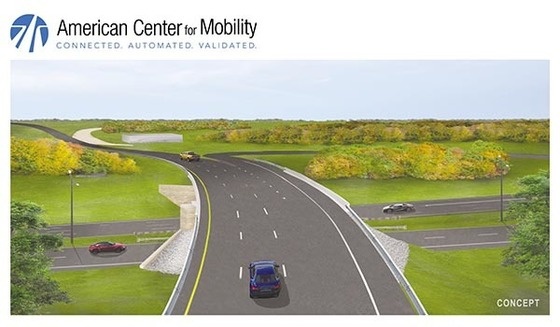
Following the signing of two memorandums of understanding, ACM, ITE and SAE will work in concert to identify specific guidelines to make certain the deployment of automated vehicle technology is done safely and effectively. The three will also look for methods, processes, organizations and business practices that can be used to help establish and hasten the adoption of these standards.
"Voluntary standards are urgent and critical for automated vehicle technology and infrastructure. We're excited to be working with these two leading organizations which are world-renowned for their work on standardization," said John Maddox, president and CEO, American Center for Mobility.
Karamba Security Named Best Auto Cybersecurity Product/Service of 2017 by TU-Automotive
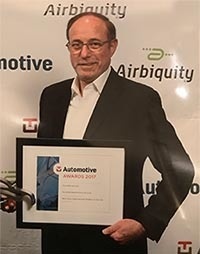
Autonomous cybersecurity solutions company Karamba Security has been awarded Best Auto Cybersecurity Product/Service by TU-Automotive.
The announcement was made during a reception in Novi, Michigan as part of the TU-Automotive Detroit Conference and Exhibition. Karamba Security was selected for its pioneering work on prevention software that protects a vehicle and its factory settings by stopping hackers from making potentially harmful changes.
Karamba Security, a startup from Israel, opened offices in Ann Arbor to be closer to U.S. automakers after raising $12 million in funding from venture capital firms Fontinalis Partners and YL Ventures.
“We are proud and honored to accept TU-Automotive’s Best Auto Cybersecurity Product for 2017,” said Ami Dotan, Karamba Security’s CEO and co-founder. “Adding to the broad market demand we are experiencing, the award is another indication of the automotive industry’s vote of confidence that our solutions best meet the need to prevent cyberattacks before hackers succeed in infiltrating the car. We will continue to keep consumer safety our top priority by providing cyber prevention with zero false positives and negligible performance impact.”
Video: ACM Update, Developing Validation Standards for Connected and Automated Vehicles
Andrew Smart from the American Center for Mobility explains self-driving and connected vehicle validation standards:
"What we're looking at in the environment for connected and automated vehicles is how we can develop standards. ACM can then convene and bring the institutions together and then really accelerate the deployment of the technology."
Click to hear more from Andrew and check in on the progress of the construction at ACM during a recent tour of the facility. American Center for Mobility.











